An interview with Michel Gondry
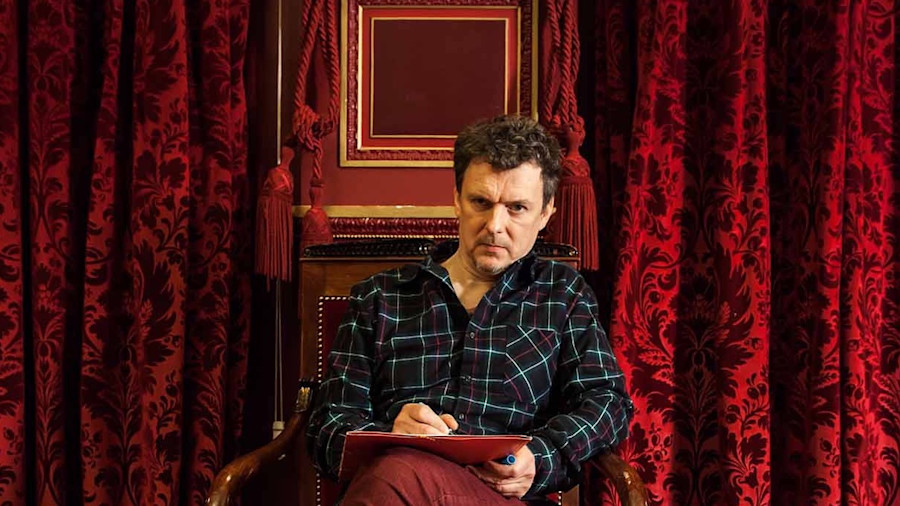
What else is there to say? Michel Gondry — one of the greatest directors and creative minds of our time — spoke on his life's work in 28-35-55 for Semi Permanent Sydney 2019.
Interview: Murray Bell and Christopher Barker
Michel, how do you unwind?
I'm very much a person of routine. I own a house in the mountain with my aunty in the middle of France. It’s very isolated. I go with her for a few weeks every year — that's one of my favourite occupations. I love to travel and I'm lucky to do it with my job, but going even 500km out of Paris is a change of landscape and spirit that could be stronger than if you went to the other side of the planet.
What's the first thing you do when you get there?
I take my briefcase upstairs. My aunty, she stopped doing this a few years ago, but she would make anchovies covered in dough and cooked in the oven and she'd serve them in a bowl of syrup with berries. When I walked around the house and around the side of the mountain, it did a lot for my imagination as a kid. The house is on a hill and there's a geometric aspect to it.
Then I go to my favourite place down by the river. I know all the rocks by heart. Ten years ago the river flowed over and one of the biggest rocks was pushed upside down and I was really upset about that.
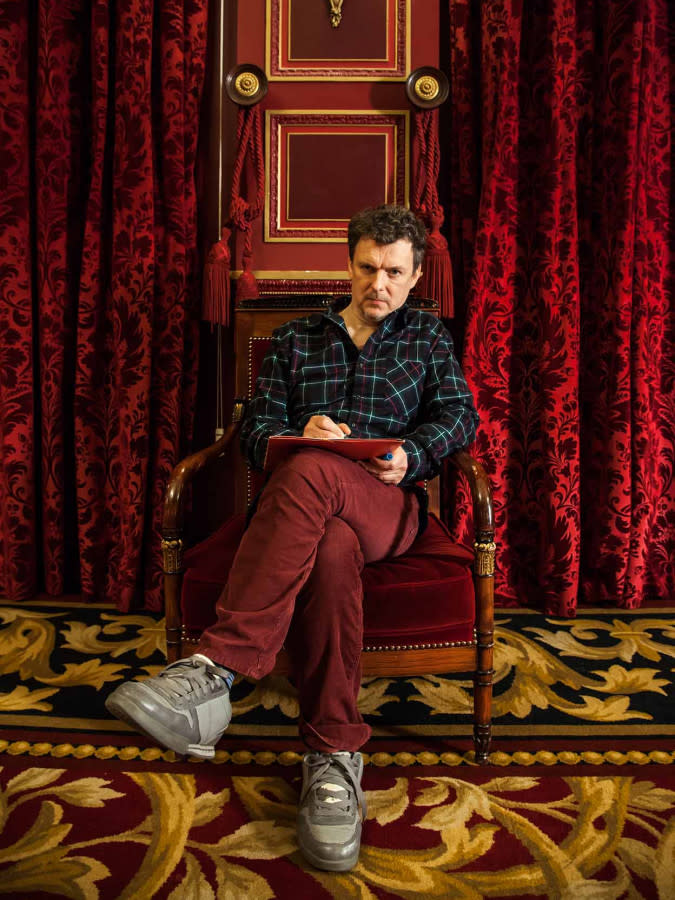
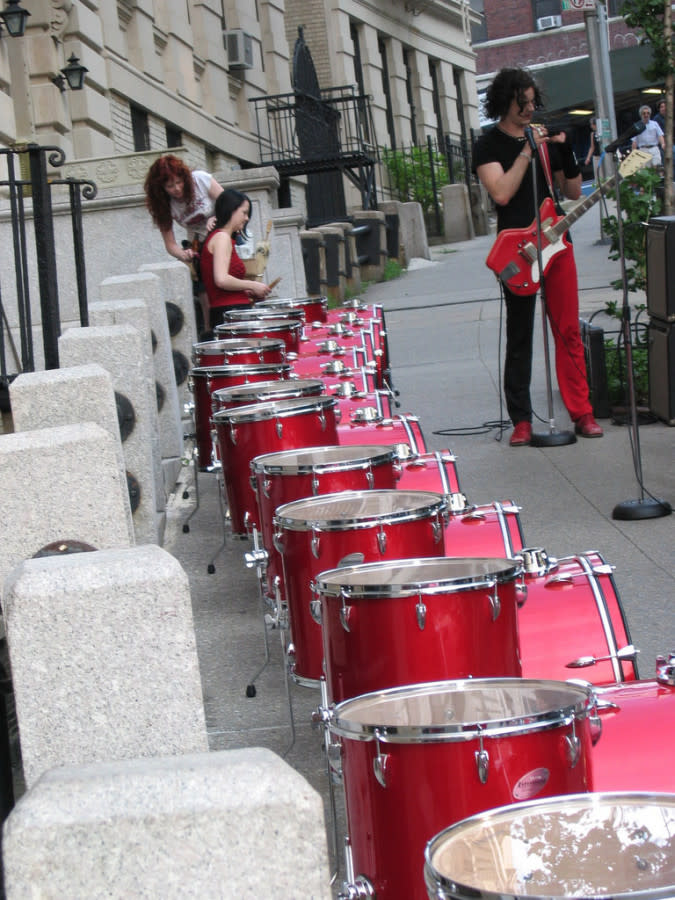
Do other locations have such an influence on your work?
If I wanted to simplify it, it's like a spiral. First, it was Versailles where I was as a kid; then I went to Paris and it was music videos; then I went to London and into advertising; then to Los Angeles and it was movies. That's very simplified, but it's how it worked for me. Then the spiral goes bigger, into Japan and the middle east, etc.
What's the next loop?
Australia? I haven't been to the southern hemisphere much. I went to Chile and everything was the opposite and it fucked with my head.
What about in LA where you are now. What do you do there in your spare time?
I like watching the skies and seeing all the stars. I like astrophysics, it's really important.
Can you draw a line from studying astronomy into your work?
It's not so direct. The concept of infinity, for instance, is absolutely bothering me. I imagine it like a road I have to walk forever. But then we talk about different sides of infinity, how can you make a number with no end bigger or smaller? For example, you have incremental numbers — 1, 2, 3, 4 — but you also have smaller numbers —1.2, 1.2, 1.3, 1.4 — so your infinite road gets wider. Sometimes I express a sense of infinity in my videos, but it's also perhaps my fear of death driving it.
To fear death is to fear never having existed and everything you've done not existing anymore.
Michel Gondry
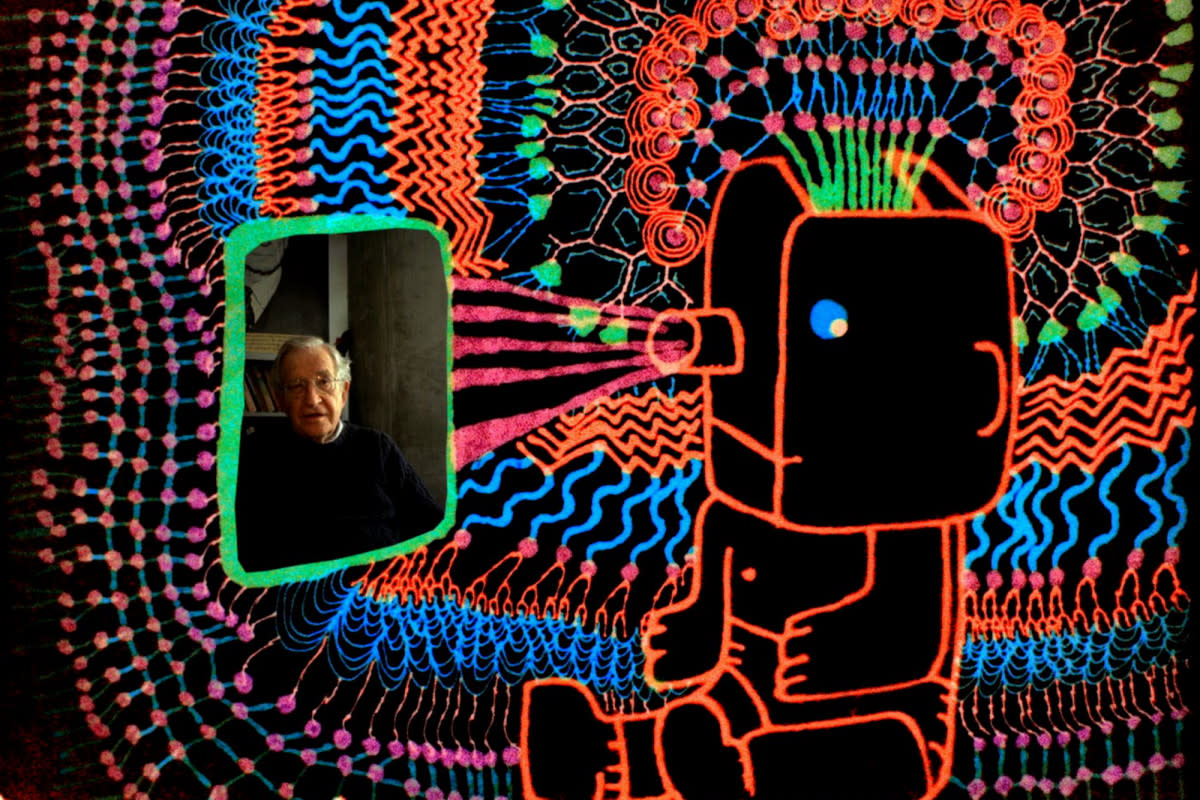
Are you scared of death?
Oh, yes.
To what extent?
Well, it’s not that I'm scared of death, it's the idea that you can't be infinite. I try to be present in my life because to fear death is to fear never having existed and everything you've done not existing anymore. I feel it's like surgery when you fall asleep and wake up instantly. Death is the same, you will go to sleep and wake up on the other side right away.
But what about the role of your dreams? They are the subconscious middle ground.
Many times once I've woken up after an adventure in my dream, I've experienced something so deep and life-changing and groundbreaking that I think I have an intimate story to tell. But it evaporates so quickly! I want to show someone exactly how I felt in that dream.
It's like in Forbidden Planet when the guy builds a machine that makes you more intelligent. He pushes it on maximum and for a minute he understands everything, then he knows nothing. That's how I feel when I wake up. I wish I could grab it because it's such an intimate story.
That's technology we don't have yet.
I'm working on an animation based on a dream I had long ago (it was the morning that Michael Jackson died). The memory is very precise and I'm trying to recreate it as precisely as possible, but there is so much texture missing and I don't know what it would take to get the texture of that dream. I'm still going to express something connected to my dream, but it will never have the complexity and depth of the feeling. I have a lot of lucid dreams, but I worry (while dreaming) about the quality of the image. Like I could think how amazing it was that I was creating an entire universe in front of me, and I could look left and right and see images made by me. The quality of the image was like a film, but more 16mm than 35mm, so I was stripping my dream from within the dream.
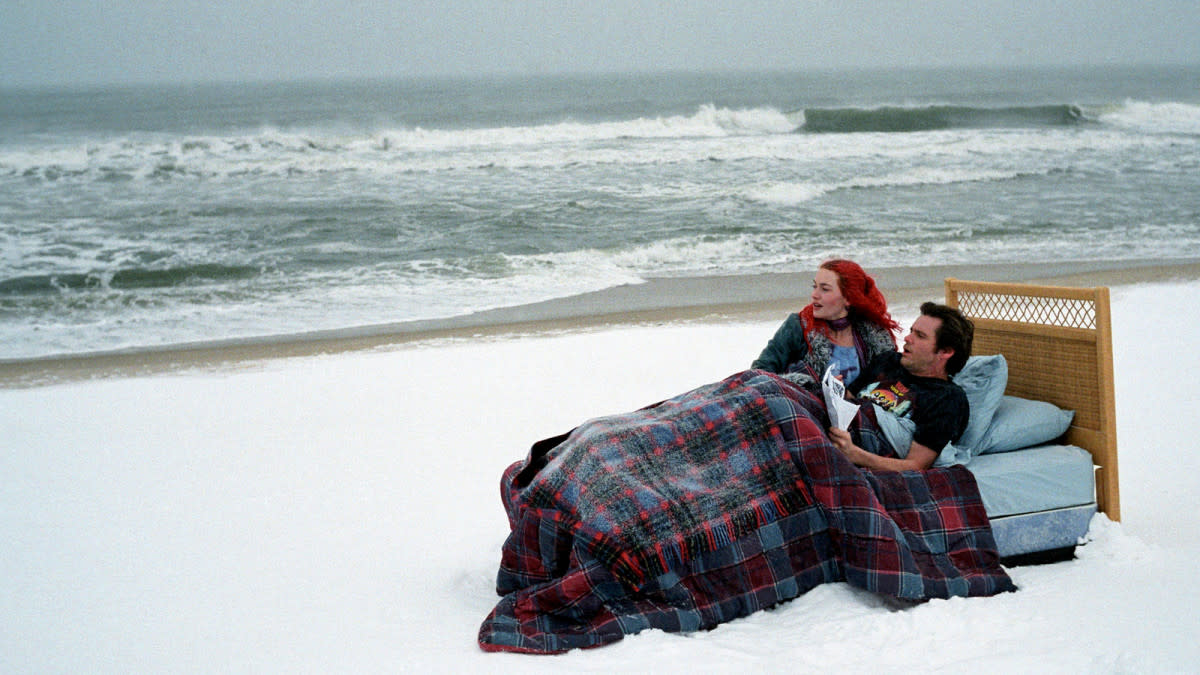
Your son is getting old enough for you to watch the shift in perspective that adulthood brings. What’s that like to observe?
I remember going to the movies with my son when he was around eight or ten, and it was such a different experience than going on my own or with a friend. I would see the film through his eyes.
There is something we forget as adults which is the magic of just going out. Children remember the experience more than the theme. So even if the theme isn't there in the film, you still appreciate the experience of going with your dad to see it, and you apply that to the film in a different way. If your son or daughter loves the film, you're not going to say 'I hate it'. You want to participate in their enjoyment. You watch a film more as people did at the beginning of cinema, where the idea of sitting in a big room with a moving image was magic.
What does he do now?
He lives in New York. He opened a gallery. He destroys the house. He’s an artist and is very creative.
He'll ask my opinion [on his work] and as soon as I say something slightly negative or constructive he yells at me. And if I don't give him my opinion he yells at me because he thinks I don't care. It's a difficult position and he needs some guidance, but it cannot come from me. I've asked Spike and Harmony to meet him and exchange ideas. That would be more constructive because I need to be careful our relationship doesn't suffer.
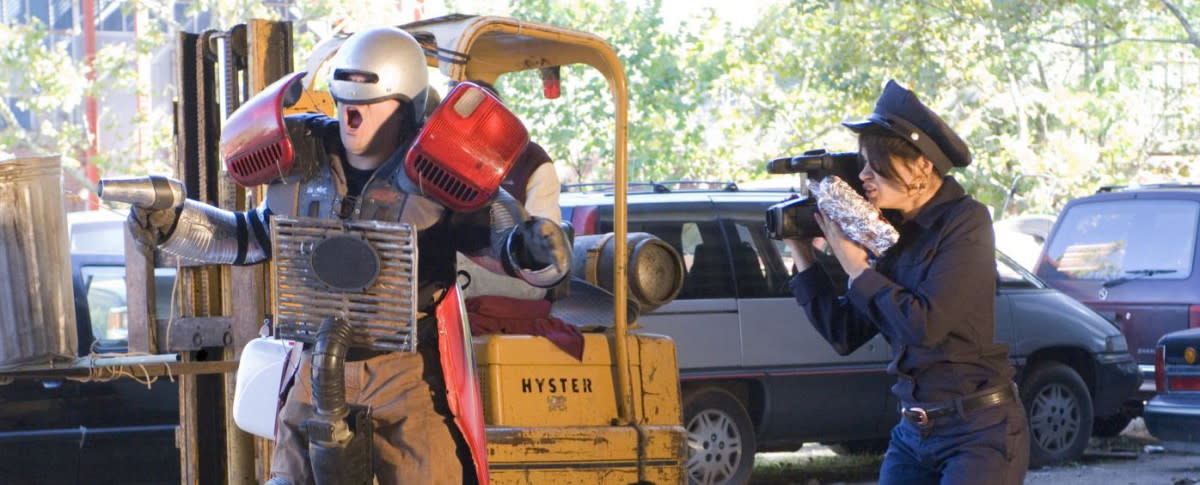
Did that new lens for viewing film intervene in your own projects?
When my son was younger I would never do something he couldn't watch. I PG'd myself. Now it's more complicated because he is way more hardcore than me. As a teenager he became more insensitive to blood than I was, so we'd watch a movie together and when it would get too heavy he would block my view.
But one time we went to see a movie near my house in Paris, Luc Besson's Joan of Arc which I really liked. On the way back we walked around a cemetery and he said that while blood and people getting their heads cut off was not scary, the only thing that scared him was the flashbacks!
We talked earlier how we don’t have the technology to bring our dreams to life in real-time. Is that a goal of the Home Movie Factory?
I wanted to write a story about the interaction of people coming to meet each other with nothing in their mind. There is no agenda or project, you just come to participate and by the end, something comes out in the shape of a story. Once there is a story you can realise how you want to shoot it, but as a proof, the story exists. Then there is a series of principles of belief I have. These aren’t controversial, but people tend to say ‘it’s not going to work’ and I want to prove it can.
This system is designed to break the ice. First, you have to talk about the genre of film, then you go to the title, then after about 10-minutes, you start to hear laughter in the distance. That's when the system proves itself to be working, once they are working together. Then you see people running between sets with their map, some are wearing costumes and you can feel their excitement. There are things happening between people.
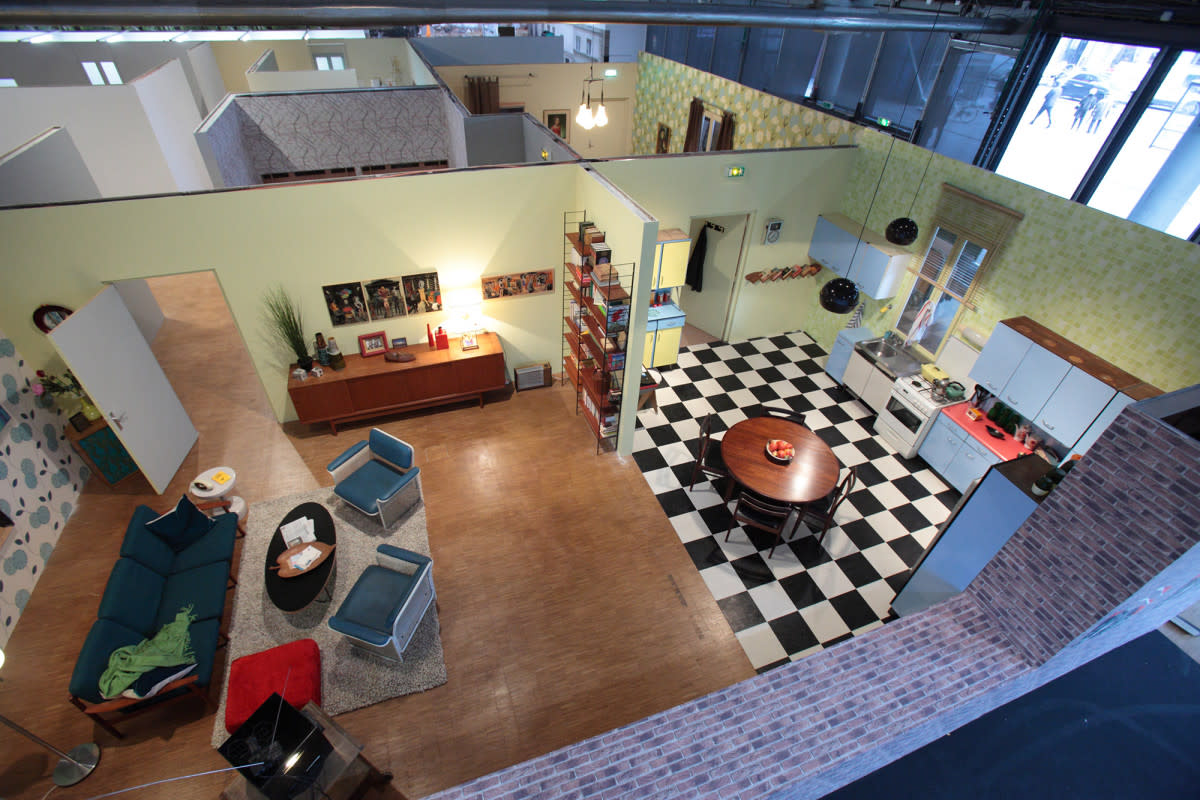
It's a bit political in a sense. I suggested many times to have blue screens and more complex stuff, but I really wanted a group of amateurs to control everything. There are [workers] around so everyone walks in the right direction, but I don't want them to feel that something is not possible. I want them to feel they did it all by themselves. It doesn't need to be crafted or perfect, it just needs to be activities you can make on your own so you can use this system of making a small film at home on your phone with your friends in a professional way.
Do you think that's the mission of your body of work? To just create something?
I'd love to achieve something where people stop breaking my balls about Eternal Sunshine [laughs]. I'm proud of it, but I've done other things. Younger people talk about Be Kind, Rewind because it inspired them to make something, which is an achievement. But most people come back to Eternal Sunshine. I thought it would be easier to stop.
What does that mean for your relationship with Jim?
Now that we're closer we reminisce about our professional relationship during Eternal Sunshine and how much we annoy and appreciate each other.
One time, for instance, he was asking for so many takes of a scene we had to get through before dark (it's the scene where he's on the phone from the train). We'd reached the fifth take — just ridiculous — and the film ran out. He asked me if it was good and I said 'yeah it's great, let’s move on' but he had an assistant who was checking everything and had told him the film ran out. I swear, I will never ever lie again to anyone. I had no excuse and it was horrible. He was crying in the middle of the scene and he wanted to kill me. Sometimes I wanted to kill him.
On Kidding, he was yelling at me and I'd say 'Jim if you scream at me like that I will not be able to like you, and if I don't like you I can't work with you’. But we talk about that now and laugh.
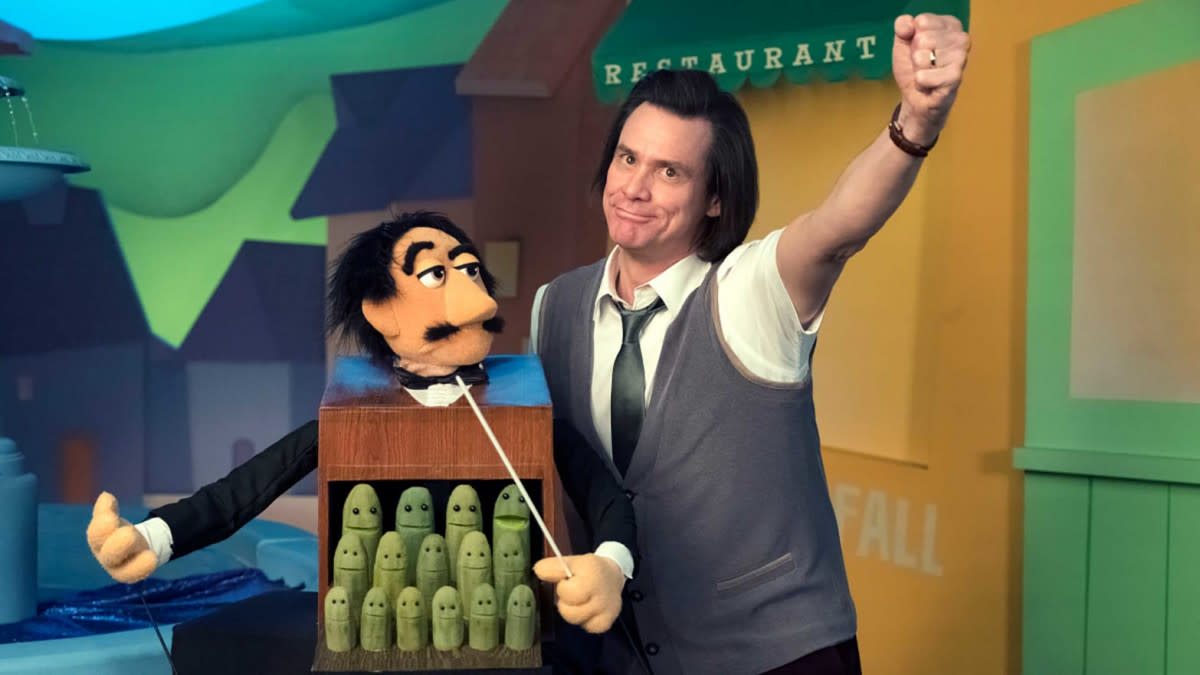
We're going to chat soon at Semi Permanent Sydney. What do you want people to know about you?
I have to tell you a bit of a dream that reflects how I feel right now about age and death.
I was in this dream and someone told me I'm 35. And I'm panicking and freaking out. Then I realise I'm not 35, I'm 28. And I thought 'oh ok I still have time'. Then I woke up and I'm 55. That's how I feel.
So it’s about finding a technology or process to share those feelings.
What I find interesting about someone like David Lynch is that he has the instinct of filling instantly what would take a normal film hours to reach. In a dream, you go right to the [pivotal] moment which could be the achievement of years of travel or experience or whatever. In the films of David Lynch, you're suddenly in a space or time where you feel as strongly as at the end of a scary film, but it doesn't care what has happened before. He has the juice of the panic. That's what is great about dreams, but it's very hard to translate that to film, unless of course you are David Lynch.
Does that apply across your works, from a short music video to a feature film?
Music videos are just as important as film. It's not a ladder to climb. There is a lot to say about music videos as I put a lot in them. It is never a small job to express something important.
Michel Gondry appears via video link from his Los Angeles home at Semi Permanent Sydney 2019. More collaborations to be announced soon. Find out more.